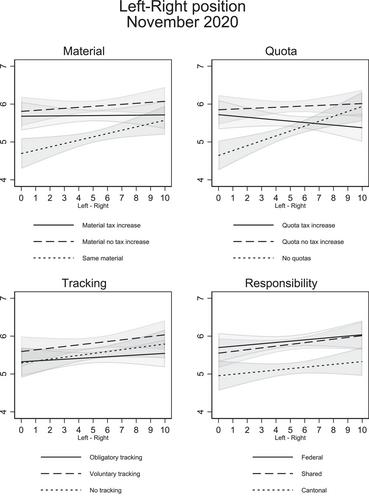Social acceptance of policy instrument design during times of crisis
IF 2.7
Q1 POLITICAL SCIENCE
引用次数: 0
Abstract
Disasters create challenges for governments as they need to design effective and legitimate policy instruments to deal with the crisis. In this paper, we analyze social acceptance of regulations and financial investments in crisis governance, taking the example of the COVID-19 pandemic. By using data from two survey experiments in Switzerland, we show that respondents support rules that temporarily centralize decision-making power to the national level but object to regulations that would make contact tracing efforts mandatory. The data shows also that citizens support financial investments of tax money to prevent future crises. Those who are afraid of the health consequences of the crisis are especially favorable to stricter regulations and financial investment, whereas economic worries related to the crisis specifically and political ideology in general barely explain variance in support for crisis responses. In general, this research contributes to our understanding of how survey experiments can be used to analyze social acceptance of policy instrument design. © 2023 Policy Studies Organization.

危机时期政策工具设计的社会接受度
灾害给各国政府带来了挑战,因为它们需要设计有效和合法的政策工具来应对危机。本文以新冠肺炎疫情为例,分析了社会对监管和金融投资在危机治理中的接受程度。通过使用瑞士两项调查实验的数据,我们发现受访者支持将决策权暂时集中在国家层面的规定,但反对强制要求追踪接触者的规定。数据还显示,公民支持税收的金融投资,以防止未来的危机。那些担心危机对健康造成影响的人尤其赞成更严格的监管和金融投资,而与危机相关的经济担忧和一般的政治意识形态几乎无法解释对危机应对的支持差异。总的来说,这项研究有助于我们理解如何利用调查实验来分析社会对政策工具设计的接受程度。©2023政策研究组织。
本文章由计算机程序翻译,如有差异,请以英文原文为准。
求助全文
约1分钟内获得全文
求助全文
来源期刊

European Policy Analysis
Social Sciences-Public Administration
CiteScore
9.70
自引率
10.00%
发文量
32
 求助内容:
求助内容: 应助结果提醒方式:
应助结果提醒方式:


